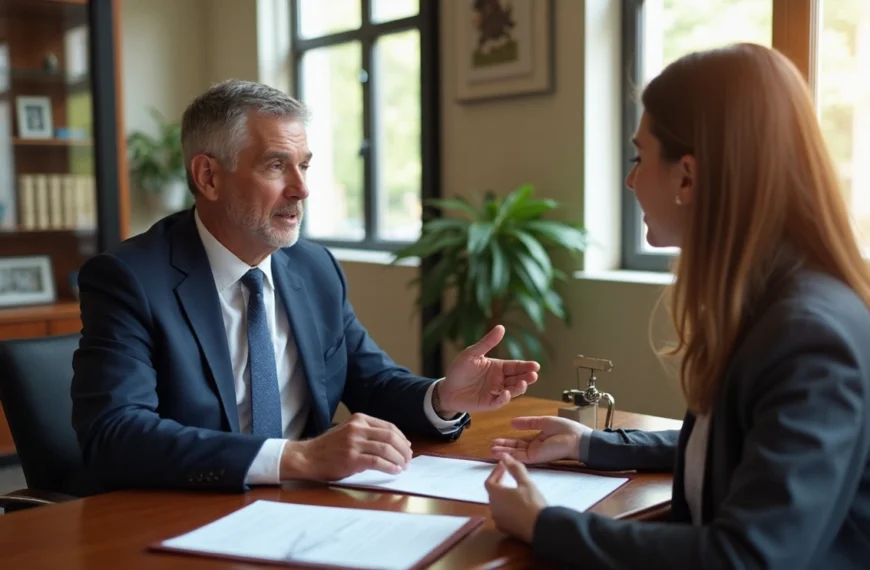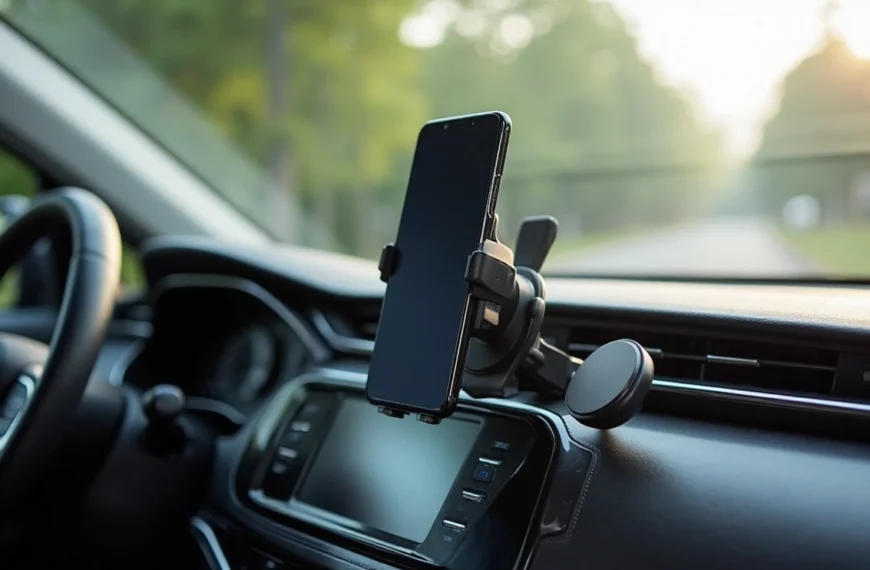Car accidents affect millions of lives each year. Many people wonder if they need a lawyer after a crash. The numbers tell a scary story – over 5 million police-reported crashes happened in just one year. These crashes led to 2.28 million injuries and 38,824 deaths. The National Highway Traffic Safety Administration reports these accidents cost about $340 billion yearly.
Medical bills, ongoing pain, and insurance paperwork can overwhelm victims of even small accidents. Insurance companies often try to save money by offering low settlements. Victims might end up with nowhere near the money they deserve. Time matters too. Important evidence like witness statements and video footage can disappear fast, which makes talking to a lawyer right away a smart move.
This piece helps you figure out if you need an auto injury lawyer. You’ll learn whether getting an attorney makes sense for different types of accidents. We’ll also help you pick the right legal team. The guide covers everything from minor fender-benders to serious crashes. Best part? Most personal injury lawyers work on contingency fees, so you can get answers without paying upfront.
When is it worth getting a lawyer for a car accident?
You should consider several factors before hiring a lawyer after a car accident. A legal expert can make a big difference in your case outcome and the compensation you receive.
Accidents with injuries or medical treatment
Medical injuries make legal representation vital. Insurance companies will look at three things to assess your injury: injury type, recovery timeline, and medical expenses (both current and future). Your settlement should cover long-term care needs, especially with serious injuries like traumatic brain damage, spinal cord injuries, or broken bones. Some injuries might seem minor but could get worse later, so getting professional legal advice makes sense.
Disputes over who was at fault
Your case becomes tougher when the other driver or their insurance company questions who caused the accident. Insurance companies try to blame victims to pay less money. States like Virginia with pure contributory negligence laws won’t let you get any compensation if you’re even slightly responsible for the accident. A good lawyer can build your case using police reports, witness statements, and accident reconstruction to prove the other party’s fault.
When insurance companies deny or delay claims
Legal help becomes necessary if your claim gets denied or the insurance company offers too little money. Insurance adjusters know how to minimize what they pay out. They might also drag out the process beyond your policy’s deadlines. A lawyer who knows these tactics can direct the appeals process and file all documents correctly on time.
If the accident involved multiple parties
Accidents with many vehicles create tricky situations where everyone sees things differently. Finding who’s at fault gets complicated with multiple insurance companies trying to reduce their costs. A car accident lawyer can sort out these complex liability issues, handle different insurance companies, and protect your rights throughout the process.
Should I get a lawyer for a minor car accident?
Image Source: Philpot Law Firm
Drivers often wonder if they really need a lawyer after what looks like a small crash. These crashes might seem simple at first glance, but they can hide problems that pop up later.
Understanding what counts as a minor accident
A minor car accident usually means there’s little damage to the vehicles and no obvious serious injuries. You might see this in fender benders, parking lot scrapes, side-swipes, or slow-speed rear-end crashes. All the same, the difference between minor and major accidents isn’t always obvious. The effects can go beyond what you see right after the crash.
Hidden injuries that show up later
You might feel fine right after the crash, but injuries can develop days or weeks later. This happens because your body’s adrenaline during traumatic events masks the pain. Whiplash symptoms from rear-end crashes often take days to appear. Head injuries can happen without any direct impact to your head. Getting checked by a doctor right after any crash helps your health and gives you important documents if you need to file a claim.
Insurance complications even in small claims
Insurance adjusters know how to negotiate. They want to settle claims quickly and cheaply. Without a lawyer, you might take a deal that won’t cover all your costs, including any long-term effects. So even tiny accidents can lead to denied claims, delays, or arguments about who’s at fault.
When the other driver changes their story
Drivers might be friendly at the crash scene but often change their story later. They usually do this because they think it will reduce their blame for the crash. Police reports are a great way to get those first statements on record, making them harder to change later. A lawyer can spot these inconsistencies, find evidence like security footage or witness statements, and reveal false claims.
What a car accident lawyer actually does for you
Image Source: Kraft & Associates, Attorneys at Law, P.C.
Car accident attorneys work hard behind the scenes. They handle several vital functions that can affect your case outcome by a lot. Their expertise goes way beyond simple legal advice and provides complete support throughout the claims process.
Investigating the accident and gathering evidence
Your claim’s success depends on a detailed investigation. Car accident lawyers collect essential evidence like police reports, property damage records, medical records, and lost wage documentation. They visit accident scenes, talk to witnesses, and get video footage before it vanishes. Complex cases require attorneys to team up with accident reconstruction specialists. These experts create compelling visual evidence that shows exactly how the collision happened. This organized way of gathering evidence creates a solid foundation for your case.
Communicating with insurance companies
Your attorney becomes your legal voice in all insurance company discussions after you hire them. This smart approach protects you from saying things that might hurt your claim. Experienced lawyers know the tactics insurance companies use to pay less and how to fight back effectively. On top of that, they make sure all communication follows legal rules and deadlines. This prevents claim denials due to technical issues.
Calculating damages and future costs
Lawyers make sure your claim shows everything you’ve lost. They document economic damages like medical bills and lost wages carefully. Then they figure out non-economic damages such as pain and suffering. Serious injury cases often use the “multiplier method.” This method multiplies economic damages by 1.5 to 5, depending on how bad the injury is. This detailed approach captures both current costs and future expenses you might miss otherwise.
Negotiating settlements or filing lawsuits
Car accident lawyers excel at negotiations and understand what cases are worth. They show strong evidence to insurance adjusters and fight back against low offers with facts that support fair compensation. When talks hit a wall, lawyers prepare and file lawsuits. They handle all court paperwork and procedures. Insurance companies often improve their settlement offers when faced with an expensive trial.
Protecting your legal rights throughout the process
Lawyers protect your legal interests in many ways during your case. They watch filing deadlines, shield you from unfair insurance practices, and keep your conversations private. States with comparative negligence laws need lawyers to work hard. They minimize any fault assigned to you that could lower your compensation. This legal protection keeps your rights safe from your first meeting until the case ends.
How to choose the right attorney for accident cases
Image Source: Michigan Auto Law
Your claim’s outcome depends heavily on choosing the right legal representation after a car accident. You need to research and evaluate carefully to find an attorney who specializes in auto accident cases.
Experience with car accident claims like yours
Finding a lawyer who focuses on auto accidents should be your top priority. Look for lawyers who concentrate on personal injury law with auto accidents as their main focus. Dedicated car accident attorneys have deeper knowledge of personal injury law than general practitioners. Your lawyer should have handled many cases like yours and know the relevant laws and procedures well. You can check their website or bio to see how long they’ve practiced personal injury law, what types of cases they handle, and their specialized certifications. A 2023 American Bar Association study shows that 87% of clients value online reviews when picking legal representation.
Fee structure and contingency agreements
Personal injury attorneys usually work on contingency fees and get paid only if you win your case. These fees typically range from 25% to 40% of your settlement or court award. To cite an instance, see a $100,000 settlement with a 33% contingency fee – your attorney would get $33,000. You should know about extra costs that might come up during your case, such as court filing fees, expert witness fees, and medical record retrieval costs. A 2024 Arizona Trial Lawyers Association report shows 92% of personal injury clients prefer contingency fees because they’re affordable. Make sure to discuss these financial details in your original consultation.
Client reviews and case results
Looking at an attorney’s track record helps you understand their expertise and success rate. Check specific case results on their website or ask about them during consultation. Good personal injury lawyers often share their settlement amounts, courtroom verdicts, and the types of cases they’ve won. Client feedback shows how well a lawyer performs. The best lawyers have high ratings (4.5+ stars), get consistent praise for communication and results, and win similar cases regularly. Reviews should mention responsive service, clear legal strategy explanations, and satisfied clients.
Questions to ask during a consultation
Here are key questions for your first meeting:
- How long have you practiced personal injury law?
- What part of your caseload involves car accidents?
- Will you handle my case yourself or give it to associates?
- How and how often do you update clients?
- What’s your success rate with similar cases?
- What challenges do you see in my case?
Note that finding an attorney who makes you feel confident and comfortable matters just as much as their professional qualifications.
Conclusion
Making the Right Decision About Legal Representation
Car accidents create stressful situations where you need to think clearly during vulnerable moments. This piece explores everything about legal representation after vehicle collisions. You’ll learn when you need a lawyer and how to pick the right one for your case.
Your injuries’ severity plays a huge role in deciding if you need legal help. Even minor accidents can lead to delayed symptoms and unexpected issues later. Getting medical help right away helps both your health and builds documentation for possible claims.
Insurance companies want to pay as little as possible instead of making sure you recover fully. Their adjusters use smart negotiation tactics that put you at a huge disadvantage if you don’t have representation. A good lawyer levels the playing field. They handle all communications and stop you from saying anything that could hurt your case.
Legal expertise proves its worth in tough situations with disputed fault, multiple vehicles, or denied claims. Lawyers collect vital evidence, prove who’s at fault, and guide you through complex insurance requirements that might overwhelm you otherwise.
The choice to hire a lawyer shouldn’t depend on how bad the crash looks. It’s about protecting your right to fair compensation. Most personal injury lawyers work on contingency fees – you pay nothing unless they win your case. They usually take 25-40% of the settlement amount.
To pick the right lawyer, think about their experience with similar cases, what their clients say, and how comfortable you feel talking to them. The questions you ask in your first meeting show you a lot about their expertise and how well they communicate.
Many people think getting a lawyer means going to court. That’s not true. It means having someone with special knowledge promote your interests while you heal. People with lawyers often get much higher compensation than those without – even after paying legal fees.
Note that statutes of limitations give you limited time to file a claim. Talk to a car accident lawyer soon after your crash to keep your legal options open, whatever you decide to do later.
FAQs
Q1. When should I consider hiring a lawyer after a car accident? You should consider hiring a lawyer if you’ve sustained injuries requiring medical treatment, if there’s a dispute over who was at fault, if the insurance company is denying or delaying your claim, or if the accident involved multiple parties. These situations often require legal expertise to ensure you receive fair compensation.
Q2. Is it necessary to get a lawyer for a minor car accident? While not always necessary, it can be beneficial to consult a lawyer even for minor accidents. Hidden injuries may surface later, insurance complications can arise, and the other driver might change their story. A lawyer can protect your rights and ensure you don’t overlook potential long-term consequences.
Q3. What does a car accident lawyer actually do for their clients? A car accident lawyer investigates the accident, gathers evidence, communicates with insurance companies, calculates damages including future costs, negotiates settlements or files lawsuits if necessary, and protects your legal rights throughout the entire process. They handle the complex legal aspects so you can focus on recovery.
Q4. How much does it typically cost to hire a car accident lawyer? Most car accident lawyers work on a contingency fee basis, meaning they only get paid if you win your case. The fee is usually a percentage of your settlement or court award, typically ranging from 25% to 40%. This arrangement allows you to get legal representation without upfront costs.
Q5. What should I look for when choosing a car accident attorney? Look for an attorney with extensive experience in car accident cases, positive client reviews, and a track record of successful outcomes. Consider their fee structure, communication style, and how comfortable you feel during the initial consultation. It’s also important to ask about their specific experience with cases similar to yours.
![Should I Get a Lawyer for a Car Accident An Expert Guide [2025]](https://consumersweek.com/wp-content/uploads/2025/06/Should-I-Get-a-Lawyer-for-a-Car-Accident-An-Expert-Guide-2025.webp)
![No Win No Fee Lawyers: The Hidden Truth About Settlement Cuts Legal representation through no win no fee lawyers gives clients a way to fight cases without paying anything upfront. Many clients don't know that these services take a big chunk of money after winning the case. Lawyers usually take 25% to 40% of what you win as their contingency fee. The amount lawyers take from settlements can add up fast. A $100,000 settlement means your attorney gets $30,000 if they charge a 30% fee after winning your case. Your solicitor's cut might be £10,000 from a £30,000 compensation award, based on your agreement percentage. This payment model stays pretty much the same for no win no fee lawyers in different places, though percentages can change. This piece breaks down what you need to know about contingency fee deals. You'll learn about standard fee ranges, extra costs beyond the basic fee, and times when this payment setup might not work in your favor. Smart clients should think over these money matters before signing up with a lawyer to make better choices about their legal help. What No-Win No-Fee Really Means Image Source: Express Legal Funding A no-win no-fee arrangement, also called a Conditional Fee Agreement, changes the way people get legal help. This payment approach removes the need to pay legal fees upfront and creates a partnership between clients and their attorneys. How contingency fees work No-win no-fee agreements are based on contingency fees. Lawyers get paid only when they win compensation for their clients. Most lawyers take between 25% and 40% of the final amount, based on how complex the case is and where it's filed. Lawyers take their cut after winning the case. To name just one example, see a case where a lawyer wins £30,000 in compensation with a 33% fee - they would receive £10,000. On top of that, some law firms use sliding scales where they charge less for quick settlements and more if the case goes to trial. The law requires a written agreement before any work starts. This paperwork spells out the lawyer's percentage, what costs you'll need to cover, and other key details. What happens if you lose the case The meaning behind "no-win no-fee" is clear - losing your case means you won't pay your lawyer anything. All the same, you should know about a few money-related details. You won't owe your lawyer when you lose, but some deals might make you pay for court fees, expert witnesses, or other case expenses. The other side could also ask you to pay their legal costs. Many lawyers suggest getting "After Event" insurance to protect their clients. These policies cover any costs if you lose your case, which makes the no-win no-fee setup much safer. Why lawyers offer this model Lawyers want to make legal help available to more people, so they offer these payment plans. This setup helps people who don't have much money take legal action when they have valid claims. The payment structure motivates lawyers to work hard. They only get paid by winning cases, which pushes them to get the best results possible. Lawyers carefully assess each case before taking it on a no-win no-fee basis. They usually accept cases that have a good chance of winning, since they put in lots of time and resources without any guaranteed payment. The Real Cost: How Much Do Lawyers Take from a Settlement Image Source: Greiner Law Corp. The true cost of no-win no-fee legal representation becomes clear once we look at contingency fees. Many clients feel surprised to see a big chunk of their settlement checks going to their attorney's fees. Typical percentage ranges (25%–40%) No win no fee lawyers typically ask for 25% to 40% of the total settlement amount. Personal injury attorneys usually take 33.3% (one-third) of the awarded compensation[101]. Lawyers and clients agree on this percentage before any work starts on the case. Several factors shape the final percentage. Your chances of winning, case complexity, and the work to be done play key roles in determining the attorney's cut. Some areas have laws that cap the maximum contingency fees for specific types of cases. Sliding scale based on case complexity Law firms often use a tiered fee system that changes with the case stage and complexity. This scale rewards quick settlements while paying attorneys fairly if more work becomes needed. The fee might start at 30% if the case settles before lawsuit filing. This number could climb to 35% after filing or reach 40% if the case goes to trial. Law firms often group cases by complexity: 10%-20%: Simple cases with straightforward settlements 25%-35%: Typical personal injury cases 35% and above: Complex cases requiring extensive resources Examples of payout breakdowns These ground examples show how fees affect settlements: A $15,000 settlement with a 33.3% contingency fee.pdf) puts $5,000 in the attorney's pocket, leaving $10,000 for the client. Similarly, from a $100,000 settlement with a 33% fee, the attorney gets $33,000 while the client receives $67,000[102]. Complex cases tell a different story. A $100,000 settlement with a 30% fee plus $5,000 in extra costs leaves $65,000 for the client after all deductions. These fees substantially change the client's final payout. Hidden Costs You Might Not Expect Image Source: Nelson Personal Injury Lawyers Beyond percentage-based fees, clients often feel surprised by extra costs that can reduce their final compensation by a lot. These hidden costs show up in the fine print of no-win no-fee agreements. You should think over these details before signing. Court filing and expert witness fees Legal proceedings come with unavoidable court filing fees. These charges differ by jurisdiction. They usually range from $30 for small claims to several hundred dollars for complex civil lawsuits. Expert witnesses can be expensive, with hourly rates ranging from $150 to $1,000 based on their credentials and testimony complexity. Expert witnesses charge more for court appearances than consultation work because of added pressure and prep time. Clients might still need to pay experts for their prep work even if the case settles before trial. Medical report and investigation costs Medical documentation is a vital part of many legal claims. These costs include fees to release medical records, create specialized reports, and prepare documents. Investigation costs cover evidence gathering, police reports, witness interviews, and other fact-finding work needed to build a strong case. Of course, some firms say they'll cover these expenses upfront, but clients don't completely avoid these costs. When these costs are deducted from your compensation Law firms take these expenses from the settlement amount before they calculate their percentage fee, though each firm handles this differently. Some lawyers subtract these costs after figuring out their contingency fee, which changes how much money clients end up with. Most firms pay case-related costs during the process and get their money back from the settlement. The defendant usually pays most simple legal costs and disbursements in successful cases, but not always everything. Insurance protects clients from costs in unsuccessful claims at many law firms, but this protection isn't guaranteed. Clients should review their agreements carefully since they might still need to pay specific expenses even if they lose their case. When No-Win No-Fee Might Not Be the Best Option Contingency fee arrangements give many people access to justice. However, this payment model doesn't always work in a client's best interests. Knowing these limitations helps clients make better decisions about their legal representation. Cases with unclear liability Lawyer no win no fee arrangements work best in cases where fault is clear. We assessed the probability of success before taking contingency cases. Lawyers might turn down cases if there isn't enough evidence of the other party's negligence or if liability isn't certain. Cases with multiple responsible parties create more challenges. The situation gets complicated fast when several parties share liability. Lawyers are less likely to take these cases on contingency. They need to be confident they can prove the other party's negligence before accepting a case. Low-damage or low-payout claims Small claims often don't work well with the contingency model, even with real injuries. Cases that have minimal injuries or limited financial damages might not bring enough compensation to cover legal costs. The potential settlement needs to be big enough to pay for investigations, witness interviews and court fees. Personal injury lawyers often turn down cases where the "compensation potential" is too small. This doesn't mean the claim isn't valid - it just means the economics don't add up for a contingency arrangement. Situations where hourly billing may be better Hourly billing has clear advantages in certain cases. Clients see exactly what they're paying for - every hour worked and task completed. This model works well for cases that need lots of attention but don't have clear financial outcomes. Complex litigation with opposing parties works better with hourly billing and a retainer fee. Clients have more control over their case and don't feel pressured to settle quickly. Cases that need extensive preparation but have uncertain outcomes fit the hourly model better. Lawyers can spend the time needed without worrying about contingency limits. This approach often leads to better representation, especially for complex legal issues that need special expertise. Conclusion Understanding the Full Picture Before You Sign No-win no-fee arrangements offer legal representation without upfront costs. Of course, this seems attractive at first glance. In spite of that, you need to think about how these agreements can affect your final compensation. Legal fees usually range from 25% to 40% of your settlement - but that's just the start. You'll face more deductions like court filing fees, expert witness costs, and charges for medical documentation. What looks like a "free" service ends up taking a big chunk of your compensation to cover legal expenses. These arrangements work best in specific situations - cases with obvious liability, substantial damages, and solid evidence. If you have a low-value claim or complex liability issues, traditional hourly billing might serve you better. Without doubt, you should ask for clear explanations of all possible costs before signing anything. Read the fine print closely, especially when you have to deal with expenses in unsuccessful cases. Ask to see sample settlement breakdowns that show all deductions. This helps you picture what you might actually take home. Your choice to go with a no-win no-fee arrangement depends on your situation. This model helps if you don't have money to pursue valid claims. But if you have a strong case and enough funds, other fee structures might let you keep more of your compensation. Whatever payment model you choose, knowing exactly how much lawyers take from settlements helps you make better decisions. This knowledge lets you approach legal representation with real expectations and better control over your money. FAQs Q1. What percentage of a settlement do no-win no-fee lawyers typically take? No-win no-fee lawyers typically charge between 25% to 40% of the final settlement amount as their contingency fee. The exact percentage often depends on the complexity of the case and the stage at which it is resolved. Q2. Are there any hidden costs in no-win no-fee arrangements? Yes, there can be additional costs beyond the lawyer's percentage fee. These may include court filing fees, expert witness costs, medical report expenses, and investigation costs. These expenses are usually deducted from the settlement amount before or after the lawyer's fee is calculated. Q3. What happens if I lose my case in a no-win no-fee arrangement? If you lose your case, you generally won't have to pay your lawyer's fees. However, you might still be responsible for certain expenses like court costs or the opposing party's legal fees. Many lawyers offer insurance to protect clients from these potential costs in case of an unsuccessful claim. Q4. When might a no-win no-fee arrangement not be the best option? No-win no-fee arrangements may not be ideal for cases with unclear liability, low-value claims, or complex legal issues requiring extensive preparation. In these situations, traditional hourly billing might be more appropriate and potentially more cost-effective for the client. Q5. Can I negotiate the percentage a lawyer takes from my settlement? Yes, the contingency fee percentage is often negotiable. It's typically agreed upon and formalized in writing before the lawyer begins working on your case. Don't hesitate to discuss the fee structure with your lawyer and ask for a detailed breakdown of potential costs and deductions.](https://consumersweek.com/wp-content/uploads/2025/06/No-Win-No-Fee-Lawyers-The-Hidden-Truth-About-Settlement-Cuts-870x570.webp)
![Should You Choose a Contingency Lawyer The Truth About Fees [2025 Guide]](https://consumersweek.com/wp-content/uploads/2025/06/Should-You-Choose-a-Contingency-Lawyer-The-Truth-About-Fees-2025-Guide-870x570.webp)

![Is It Worth Getting an Attorney After a Car Accident? [Expert Guide 2025]](https://consumersweek.com/wp-content/uploads/2025/06/Is-It-Worth-Getting-an-Attorney-After-a-Car-Accident-Expert-Guide-2025-870x570.webp)











